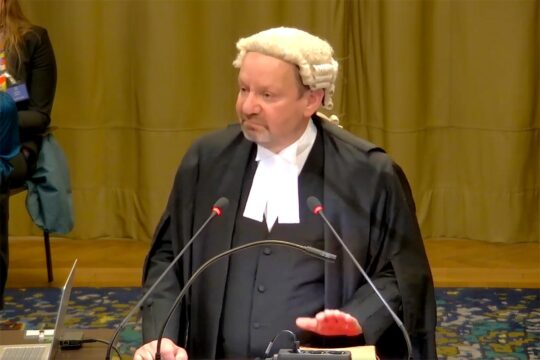Eritrea, whose government has committed crimes against humanity for 25 years according to the UN, is one of the most isolated countries in the world.
Five things to know about the Horn of Africa nation of 5.1 million people.
- Afeworki rules with iron fist -
Former rebel chief and hero of independence after 30 years of war against Ethiopia, Issaias Afeworki, has served as the president of the one-party state since 1991. No election has been organised since independence and all opposition is cracked down on.
- Crimes against humanity -
On Wednesday, the United Nations Commission of Inquiry (COI) on human rights said the government of Afeworki is guilty of committing crimes against humanity since independence with up to 400,000 people "enslaved", and should face international justice.
The crimes include systematic enslavement, forcible conscription and other abuses such as rape, persecution and murder.
- Long independence war -
Eritrea was an Italian colony from 1889 until 1941. The territory was then administered by the British between 1941-1952. In 1962, the Ethiopian emperor Haile Selassie declared the annexation of Eritrea as an autonomous entity within the Federal Republic of Ethiopia.
In May 1991, members of the rebel People's Front for Democracy and Justice (PFDJ) led by Afeworki won a 30-year independence war against the Ethiopian regime. The conflict was a key factor in the fall of Ethiopia's dictator Colonel Mengistu Haile Mariam. On May 24, 1993, Eritrea officially declared its independence.
The country, which covers about 121,000 square kilometres (48,500 square miles) has a 1,000-kilometre (620-mile) coastline along one of the world's busiest shipping lanes on the Red Sea.
- Tensions with Ethiopia -
War broke out again in a bitter 1998-2000 border conflict with Ethiopia, which had lost its Red Sea coastline when Eritrea became independent. At least 80,000 people were killed. Despite a peace deal, relations between Asmara and Addis Ababa remain tense and the border line is still disputed.
In March 2012, Ethiopia attacked an Eritrean military base, accusing the country of supporting "terrorist activities" on its territory. Eritrea was also accused and sanctioned by the UN in 2009 for its alleged role in backing Somalia's Al Qaeda-linked Shebab insurgents.
- Grinding poverty -
With an average national income of around $490 per inhabitant in 2013, according to the World Bank, Eritrea remains one of the poorest countries in the world.
Returns from the diaspora play a crucial role in development.
More than 80 percent of the population is involved in agriculture, which has low production levels.
According to the annual report of corruption watchdog Transparency International, Eritrea is one of the most corrupt countries on the planet.


